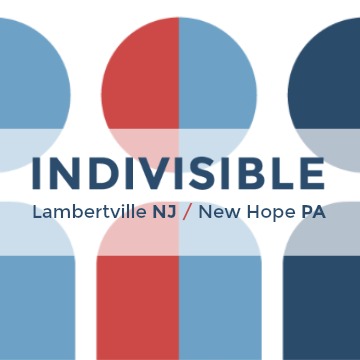Contributed by Amara Willey.
The other day during a 16-mile drive, I practiced sending love to every household that had a political sign on its lawn. What I realized during this 25-minute meditation is that both “Biden” and “Trump” have 5 letters in their names and that from a distance I couldn’t tell which sign was which. I believe that the people who voted for Biden are my brothers and sisters. I believe that the people who voted for Trump are my brothers and sisters.
Here’s another thing I’ve been thinking lately: Red and blue are colors of blood. But it’s the same blood. We experience it differently depending on our point of viewing. Blood is red but looks blue when seen through a subcutaneous fat layer beneath the skin that gives the veins a bluish tint. But it is the same blood nonetheless.
We are all Americans, red or blue, Democrat or Republican, urban or rural. It’s time to stop fearing each other. It’s time to stop judging each other. It is definitely time to stop wishing that the “other” didn’t exist.
I am encouraged by how many people voted in this election. This is democracy at work: people showing up to state their opinion. Voting is the act of reaffirming democracy. Still a mid-October Associated Press-NORC Center for Public Affairs poll indicated that 85 percent of registered voters describe Americans as “greatly divided in their values,” and only 15 percent think our democracy is working.
In an opinion piece published in September by CNN, Justin Gest and Wendy Feliz note that elections tend to “inflame divisions, since political campaigns are increasingly built on strategies that pit groups against one another with little regard for the damage they leave behind.”
They write, “If we can reinvigorate our mutual bonds with one another, we will be able to get back to the hard work of fixing many of our nation’s most pressing problems, with the realization that when one of us is left out or left behind, we all suffer.”
The George Mason University policy and government associate professor and the Center for Inclusion director respectively propose the creation of a bi-partisan White House Council for National Unity, which would be tasked with promoting social cohesion through various programs.
“The problem in today’s America is that our political polarization leads us to believe that the opposing party will destroy our way of life and exclude us from the conversation about who matters in this country,” according to Gest and Feliz.
The desire for unity is not a Democratic or Republican ideal. Both sides want to heal division, though they may have different views of how to do that.
Dr. Edwin J. Feulner, founder of the ultra-conservative Heritage Foundation, wrote in 2017, “America has endured much over its history, including a bloody civil war. Yet it has always drawn together, and it always will, provided we never lose sight of the principles that first forged our great nation — and bequeathed our great unity.”
CNN political analyst John Avlon explained in an opinion piece a year ago that we as a country need to start taking concrete steps to address our polarization.
“We can do this armed with the knowledge that we are defending core American values — because e pluribus unum is literally the opposite of ‘Us against Them,’ the demagogue’s eternal calling card. There is no ‘them’ in the United States,” Avlon says. “There is only us — imperfect people working to form a more perfect union and making fitful progress with each generation.”
He cites a study by More in Common, saying that Democrats believe that only half of Republicans recognize that racism still exists in America while Republicans believe that only half of Democrats are proud to be American. In reality, eighty percent of Republicans understand that racism remains an issue in America and eighty percent of Democrats say they are proud to be an American. Avlon calls for a broader citizens’ movement dedicated to defending our democracy by combating the larger forces dividing us as a nation and a rededication to civic education.
Unifiers for Unity
“The increasing stakes of each presidential election increase political tension and heighten public anxiety,” said David French in Time Magazine in September. “Americans should not see their individual liberty or the autonomy of their churches and communities as so dependent on the identity of the President.” French is author of Divided We Fall: America’s Secession Threat and How to Restore Our Nation.
We must look for evidence of unity and for people who naturally encourage cohesion. For example, the Republican candidate for Senate in Michigan John James released two ads this summer calling for unity, both in response to the murder of George Floyd and the protests inspired by it. The message of one of the ads is that Americans want to come together. He says, “I believe that love is stronger than hate.” He also calls himself a “unifier.” The other ad states, “Politicians will never solve these problems — only you and I can do that. No laws, no legislation can possibly change people’s hearts. But you and I can.”
Biden has also called himself a “unifier,” but one man cannot fix the country. There are many problems that need to be addressed from education and the media to the electoral college and voting fairness.
“A president might be able to refrain from exacerbating our political division, but he can’t heal it. We have to heal ourselves, culturally and institutionally, and I’m not sure we’ll prove capable. I’m not sure we really want to try,” said Bonnie Kristian in The Week. She is the author of A Flexible Faith: Rethinking What It Means to Follow Jesus Today.
The work of healing the divisions in our country is largely up to each one of us. “My point is simple: Love and warm-heartedness might not change every heart and mind, but they are always worth trying, and they will always make you better off,” said Arthur C. Brooks, author of Love Your Enemies. Brooks suggests, “America’s path forward lies in its learning to transcend self-destructive, obsessive politics in order to think clearly and to use the intelligent competition of ideas to advance the country.”
Here are 5 ways that we can as individuals work toward unity:
1. Look for ways to help
While the work of Indivisible is far from over, we need to start building bridges with our neighbors regardless of what lawn sign they had in their front yard. If you’ve become estranged from family or friends over politics, seek ways to reconnect and offer help to them.
2. Give the benefit of the doubt
If you hear or read something that you don’t agree with, take a moment to walk in the other person’s shoes. Imagine what they might be thinking or feeling (hint: often fear). Before you get mad or judgmental, remember that they have the same universal needs that you do.
3. Focus on the positive
Whatever happens in the coming years, Americans have more in common than not. When we point out our similarities and stay positive, people respond positively.
4. Respect differences
If we want things to change, it needs to start from within. We can only be sympathetic to others when we take time to heal ourselves and practice self-empathy. Then we can see differences of opinion as the shared richness of our heritage instead of something we need to “fight against.”
5. Share wisdom
There’s a difference between wisdom and opinion. If what you are about to say will help make the situation better, then it’s vital to share. If not, it might be better to count to 10 (or 20) before saying anything.
Sources:
https://www.cnn.com/2020/09/12/opinions/white-house-council-of-national-unity-gest-feliz/index.html
https://www.heritage.org/american-founders/commentary/the-unity-america
https://johnjamesforsenate.com/country-unity-ads/
https://www.aish.com/sp/pg/5_Ways_to_Build_Unity.html
https://www.nytimes.com/2019/04/03/books/review/arthur-c-brooks-love-your-enemies.html
https://time.com/5887428/american-political-division/
https://theweek.com/articles/946368/biden-cant-heal-country



